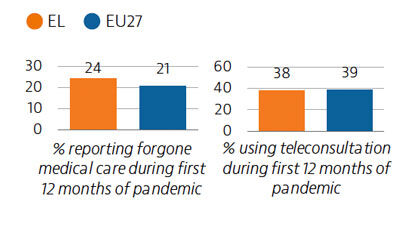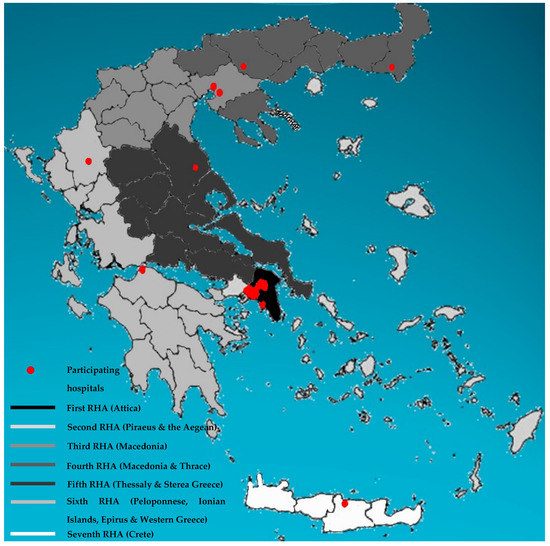Greece Ranks Second in EU for Hospital Fungal Infections: A Concerning Trend
Greece’s healthcare system is facing a significant challenge: a high prevalence of hospital-acquired fungal infections. Recent data places Greece second in the European Union for this concerning issue, highlighting the urgent need for improved infection control measures and increased awareness. This article delves into the reasons behind this alarming statistic, the implications for public health, and potential solutions.
The Scope of the Problem: Why is Greece Second?
The high rate of hospital-acquired fungal infections (HAIs) in Greece isn’t a singular issue but rather a confluence of factors. These include:
- Antimicrobial Resistance: Overuse and misuse of antifungal medications contribute to the development of drug-resistant fungal strains, making treatment more difficult and increasing the risk of severe illness and death.
- Inadequate Infection Control Practices: Insufficient hygiene protocols, inadequate staff training on infection prevention, and a lack of resources in some healthcare facilities contribute to the spread of fungal infections.
- Aging Population and Underlying Health Conditions: Greece, like many European countries, has an aging population. Older individuals and those with weakened immune systems are particularly vulnerable to fungal infections.
- Healthcare Infrastructure: While improvements are ongoing, disparities in healthcare infrastructure across different regions of Greece may contribute to variations in infection rates and access to effective treatment.
- Climate: Greece’s warm and humid climate creates an ideal environment for the growth of certain fungal species.
Types of Fungal Infections Seen in Greek Hospitals
The most common fungal infections reported in Greek hospitals include:
- Candida infections: These yeast infections can affect various parts of the body, including the bloodstream, causing serious complications.
- Aspergillus infections: These mold infections are particularly dangerous for individuals with compromised immune systems.
- Other opportunistic fungi: A variety of other fungi can cause infections, especially in immunocompromised patients.
Implications for Public Health and the Economy
The high rate of hospital-acquired fungal infections in Greece has significant implications:
- Increased morbidity and mortality: Fungal infections can lead to prolonged hospital stays, increased healthcare costs, and even death.
- Strain on healthcare resources: Treating these infections requires significant resources, placing further pressure on an already strained healthcare system.
- Economic burden: The cost of treating HAIs, including medications, extended hospital stays, and lost productivity, places a considerable burden on the Greek economy.
Addressing the Challenge: Potential Solutions
Combating this concerning trend requires a multi-pronged approach:
- Strengthening Infection Control Protocols: Implementing stricter hygiene practices, improving staff training, and ensuring adequate resources for infection control are crucial.
- Promoting Antimicrobial Stewardship: Responsible use of antifungal medications is essential to prevent the development of resistance.
- Investing in Healthcare Infrastructure: Improving healthcare facilities, particularly in areas with limited resources, is necessary to ensure consistent standards of care.
- Surveillance and Data Collection: Robust surveillance systems are needed to track infection rates and identify outbreaks promptly.
- Public Health Campaigns: Raising public awareness about fungal infections and their prevention can help reduce the risk.
Conclusion
Greece’s high ranking for hospital-acquired fungal infections presents a significant public health challenge. Addressing this issue requires a concerted effort from healthcare professionals, policymakers, and the public. By implementing effective infection control measures, promoting responsible antimicrobial use, and investing in healthcare infrastructure, Greece can significantly reduce the burden of fungal infections and protect the health of its citizens.
Frequently Asked Questions (FAQs)
Q1: Are fungal infections easily treatable?
A1: Treatment depends on the type of fungus and the severity of the infection. Some infections are easily treated with antifungal medications, while others require more intensive therapies and can be life-threatening, especially in immunocompromised individuals.
Q2: How can I reduce my risk of acquiring a fungal infection in a hospital?
A2: While hospitals take precautions, you can minimize your risk by asking healthcare providers about infection control practices, practicing good hand hygiene, and reporting any concerns about potential infections immediately.
Q3: What role does the environment play in fungal infections?
A3: The environment, particularly humidity and temperature, can significantly impact fungal growth. Hospitals need to maintain appropriate environmental controls to minimize the risk of fungal proliferation.
Q4: Is this problem unique to Greece?
A4: While Greece currently ranks high, hospital-acquired infections are a global concern. Many countries face similar challenges, though the specific types of fungi and prevalence rates may vary.
Q5: What research is being done to combat these infections?
A5: Ongoing research focuses on developing new antifungal drugs, improving diagnostic tools, and enhancing infection control strategies to combat the growing threat of drug-resistant fungal pathogens.


